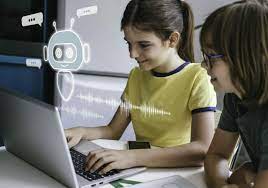
Breaking News
 The Cost Of Living Is Out Of Control
The Cost Of Living Is Out Of Control
 The Systematic Unraveling of the Administrative State
The Systematic Unraveling of the Administrative State
 POWERFUL TUESDAY BROADCAST: Trump Preparing To Appoint A Special Counsel...
POWERFUL TUESDAY BROADCAST: Trump Preparing To Appoint A Special Counsel...
Top Tech News
Magic mushrooms may hold the secret to longevity: Psilocybin extends lifespan by 57%...
 Unitree G1 vs Boston Dynamics Atlas vs Optimus Gen 2 Robot– Who Wins?
Unitree G1 vs Boston Dynamics Atlas vs Optimus Gen 2 Robot– Who Wins?
 LFP Battery Fire Safety: What You NEED to Know
LFP Battery Fire Safety: What You NEED to Know
 Final Summer Solar Panel Test: Bifacial Optimization. Save Money w/ These Results!
Final Summer Solar Panel Test: Bifacial Optimization. Save Money w/ These Results!
 MEDICAL MIRACLE IN JAPAN: Paralyzed Man Stands Again After Revolutionary Stem Cell Treatment!
MEDICAL MIRACLE IN JAPAN: Paralyzed Man Stands Again After Revolutionary Stem Cell Treatment!
 Insulator Becomes Conducting Semiconductor And Could Make Superelastic Silicone Solar Panels
Insulator Becomes Conducting Semiconductor And Could Make Superelastic Silicone Solar Panels
 Slate Truck's Under $20,000 Price Tag Just Became A Political Casualty
Slate Truck's Under $20,000 Price Tag Just Became A Political Casualty
 Wisdom Teeth Contain Unique Stem Cell That Can Form Cartilage, Neurons, and Heart Tissue
Wisdom Teeth Contain Unique Stem Cell That Can Form Cartilage, Neurons, and Heart Tissue
 Hay fever breakthrough: 'Molecular shield' blocks allergy trigger at the site
Hay fever breakthrough: 'Molecular shield' blocks allergy trigger at the site
Danger! Kids Are Chatting With AI Like it's Their Best Friend

A new UK report, Me, Myself & AI, reveals that a growing number of children are turning to AI chatbots not just to cheat — er, study — for exams, but for emotional support, fashion advice, and even companionship.
The report, published Sunday by the nonprofit Internet Matters, surveyed 1,000 children and 2,000 parents across the UK and found that 64% of kids are using AI chatbots for everything from schoolwork to practicing tough conversations. Even more eyebrow-raising: over a third of these young users say talking to a chatbot feels like talking to a friend.
Sure, the bots don't eat your snacks or hog the Xbox, but they also don't come with built-in safety checks — at least not yet.
When AI becomes the teacher, therapist, and BFF
Some of the findings are encouraging for anyone optimistic about AI's role in education. Forty-two percent of children said they use chatbots to help with schoolwork, citing quick answers, writing support, and language practice.
But dig a little deeper and the picture gets more complicated. Nearly a quarter of kids say they use chatbots for advice, ranging from what to wear to how to navigate friendships and mental health challenges. Even more concerning? Fifteen percent say they'd rather talk to a chatbot than a real person. Among vulnerable children, those numbers climb even higher.
It's the kind of customer engagement some brands only dream of — minus the ethical guardrails, age checks, and regulatory oversight.
A cautionary tale for the tech sector
The report doesn't pull punches, particularly when it comes to how unprepared many AI platforms are for their youngest users. Kids are interacting with chatbots like ChatGPT, Snapchat's My AI, and character.ai — platforms not necessarily designed with children in mind. The result? Some are receiving inaccurate information, emotionally confusing feedback, or even inappropriate content. (Yes, despite terms of service that suggest otherwise.)
And while "robot friend" might sound like a charming Pixar subplot, it becomes a lot more serious when one in four vulnerable children say they use chatbots because they have no one else to talk to.

 Talk to the AI Hand!
Talk to the AI Hand! AI Getting Better at Medical Diagnosis
AI Getting Better at Medical Diagnosis

